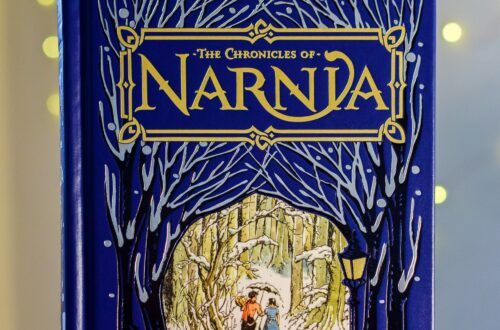
Why We Love Magic: A Christian Perspective on Fantasy
“If I find in myself desires which nothing in this world can satisfy, the only logical explanation is that I was made for another world.” – C.S. Lewis, Mere Christianity
This popular quotation by C. S. Lewis echoes a thought I’ve recently had on our draw as humans towards stories containing magical or fantastical elements. The fantasy genre is widely popular and it is made unique because of all the varieties of magical elements it contains. Lord of the Rings, The Chronicles of Narnia, even Disney movies are full of magic.
This made me wonder, why are we so drawn to stories with the fantastical? Magic is widely controversial within Christian circles, and yet I believe that a lesson can be learned from it. What if magic in stories reveals the fact that we were made to live supernatural lifestyles as Christians?
The Bible’s Stance on Magic
Let me clarify that I don’t believe we should in any way involve ourselves in witchcraft, fortunetelling or any other element of what today is commonly known as magic. In fact, the Bible is very clear on what our stance should be on such things:
Deuteronomy 18:10-12 (NIV): 10 Let no one be found among you who sacrifices their son or daughter in the fire, who practices divination or sorcery, interprets omens, engages in witchcraft, 11 or casts spells, or who is a medium or spiritist or who consults the dead. 12 Anyone who does these things is detestable to the Lord; because of these same detestable practices the Lord your God will drive out those nations before you.
Some may argue that the Old Testament is extremely harsh, and yet the standard remains in the New Testament as seen by the following story in Acts:
Acts 19:18-19 (NIV): 18 Many of those who believed now came and openly confessed what they had done. 19 A number who had practiced sorcery brought their scrolls together and burned them publicly. When they calculated the value of the scrolls, the total came to fifty thousand drachmas.
In Acts 13, Paul rebuked a sorcerer who attempted to get in the way of the Gospel. (Acts 13:9-11)
All this to say that the Bible takes a clear stand against magic and sorcerers whose job was to counterfeit the power of God and deceive people into following the Devil. But keep in mind that what these people did was a counterfeit.
During the 10 plagues of Egypt, the magicians imitated the first two plagues, but by the third plague they were unable to do anything and they claimed that it was “the finger of God.” (Exodus 8:18-19)
Counterfeit Power vs. God’s Power
The enemy can replicate many of the works of God (like Pharaoh’s magicians), but anything he does will only ever be an inferior counterfeit of the real power of God. Fortune telling is a cheap imitation empowered by the devil to counterfeit godly prophecy inspired by the Holy Spirit. False miracles are empowered by the enemy to counterfeit God’s healing and miracle power. God’s healing comes from His love and grace; the enemy’s miracles tend to come at great personal cost.
My intent is not to present how the enemy works, rather, to show that God is superior in every way and that His power is the real thing. Just remember the story of Elijah and the prophets of Baal! (1 Kings 18:20-39) We are drawn to the supernatural because we are children of God and were created to live and walk in the supernatural.
A Mandate for the Supernatural
Jesus, when He shared the great commission, said the following:
Mark 16:15-18 (NIV): 15 He said to them, “Go into all the world and preach the gospel to all creation. 16 Whoever believes and is baptized will be saved, but whoever does not believe will be condemned. 17 And these signs will accompany those who believe: In my name they will drive out demons; they will speak in new tongues; 18 they will pick up snakes with their hands; and when they drink deadly poison, it will not hurt them at all; they will place their hands on sick people, and they will get well.”
I don’t know about you, but to me this does not sound like a normal, everyday existence. And yet this is what Jesus promised would happen when we went out into the world to make disciples. We would drive out demons, we would speak new tongues, we would pick up snakes and not be harmed, we would drink deadly poison and not die, and place our hands on sick people and they would be healed. (Please don’t drink poison to prove a point. That would just be dumb!)
That is supernatural. That is not something that can be fathomed or made sense of in a scientific way. In Matthew 10:8 Jesus gave His disciples power to raise the dead. That is not normal. But with God, it is the new standard of living. We are called to believe in greater things because Jesus Himself did the impossible and died, resurrected and ascended to make the impossible possible in and through us.
Many people would argue that this power died when the Bible canon was closed. It died with history. And many people would argue it because their personal experience has not included the supernatural. But as a popular quote says (author unknown): “A man with experience is never at the mercy of a man with an opinion.”
I have seen God do inexplicable things, so I can believe that I was created for more than a simple human experience conformed to living without seeing the greatness and goodness of God. The supernatural, empowered by God, is indeed possible.
Which brings me back to my point: The magical and fantastical in books reveals our human design by God for the supernatural.
Guides for Magic in Fiction
So what should our stance be on magic in books? I believe books can reflect our deepest desires, one of them being to see the extraordinary in this life. But I do think that there are some Biblical, ethical, and moral lines that should be valued when dealing with magic in fiction.
- Evil should always be ascribed to the enemy – whether it be the villain, the antagonist, or the “bad side”, evil should not originate with the heroes we are meant to admire.
- Evil should never be exalted or praised.
- When darkness is portrayed, it should be done in a way that showcases why it is incorrect in the first place.
- Good should be portrayed just as powerfully, if not more so, than evil. Many stories make the bad guys so much cooler. But I believe that as Christians we are called to be more than conquerors. With God living inside of us, why should we portray ourselves in fiction as less powerful than evil? Sure, you can have a weak hero or protagonist, but by the end of the story, they should realize that goodness is ultimately more powerful than evil.
- The hero should use their power in such a way that it is beneficial, ethical and moral. Only the enemy would require an immoral sacrifice of any sort in order to gain, use or obtain power.
- Good doesn’t always win, but it always has the final say. Yes, the enemy managed to kill Jesus. But after three days Jesus resurrected. Darkness can have temporary victories; in fact this is a way of life, but darkness doesn’t ultimately get the last word.
- All good power should ultimately reflect God and His character. If it doesn’t, then you have to ask yourself if it is even good in the first place.
Reading and Writing With God
You may be asking yourself where this leaves many popular stories today. That is something for you to decide with the guide of the Holy Spirit. But I want to leave a final challenge. If you’re a reader, do the books you read reflect the God-made design for the supernatural? If you’re a writer, do the stories you write do justice to God’s creation and plan for humanity?
Our love for the magical and fantastical in books and entertainment is a reflection that we were born for the supernatural. We were created to walk in miracles, signs and wonders. The power of God didn’t cease with the biblical canon and Jesus Himself has called us to greater works than those He performed Himself. How can you partner with God in cultivating supernatural literature that calls people higher and reflects His heart for us?
Made to Bring Heaven to Earth
I’d like to close this by repeating Lewis’ quotation:
“If I find in myself desires which nothing in this world can satisfy, the only logical explanation is that I was made for another world.”
We were made for another world. Better yet, we were made to bring that world from heaven to earth!
Until next time,
Anna
Photo by Cosmic Timetraveler on Unsplash




